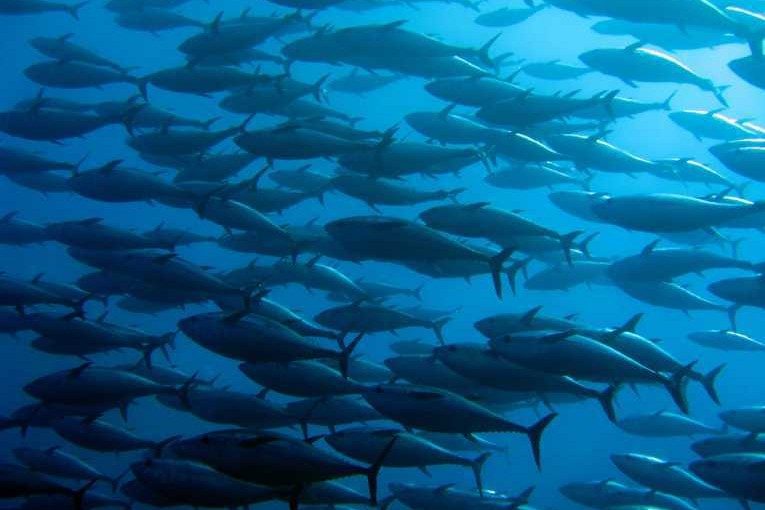Behind the partnership: How co-financing is driving a resilient recovery in Mozambique
Spanish, French fleets blacklisted from Indian Ocean for illegal fishing

in file CoM
Spanish and French vessels found fishing illegally in the Indian Ocean have been blacklisted after a key watchdog found them repeat offenders.
The Indian Ocean Tuna Commission (IOTC) says the vessels were found to have been illegally fishing in the exclusive economic zones of Somalia, Mauritius, India and Mozambique; without the respective permission of these countries.
A situational report by IOTC, released during the 26th Session in Seychelles says: “Fleets such as these cause irreversible damage to our ocean, threatening marine life and the people who depend on it around the world.
“This was recognised by nations at the IOTC meeting this week, where the several member countries urged the Commission to blacklist the fleet. They catch more yellowfin tuna than any other gear in the Indian Ocean – with 97 percent of the yellowfin tuna caught around dFADs in the Indian Ocean by purse seiners being juveniles,” the statement said.
Kenya and South Africa’s aggressive hunt against drifting fish aggregating devices (dFADs), such as trawlers, contributed to the decision. Conservationists are increasingly contesting the use of such fishing techniques as the vessels catch more juvenile fish that could contribute to the dissipation of species.
IOTC, an intergovernmental organisation mandated to guard highly migratory tuna and tuna-like fisheries resources in the Indian Ocean has also been promoting the use of appropriate fishing techniques. The Commission did not name the number of vessels banned but did suggest all those carrying flags from the two countries will no longer be permitted to fish in the zone.
The Indian Ocean is the second-largest tuna fishery in the world.
1/2 The Indian Ocean Tuna Commission (IOTC) held its annual session from 16 to 20 May 2022. Six IOTC members (India, Indonesia, Iran, Madagascar, Oman, and Somalia) objected to a rebuilding plan for the yellowfin tuna stock in the Indian Ocean. @HarunMaruf pic.twitter.com/V93sLluIoP
— Abdullahi A. Addow (@A_Addow) June 3, 2022
The Indian Ocean Tuna Commission (IOTC) has held its annual session from 16 to 20 May 2022. https://t.co/fzUoOcLQN1
— José Macedo, Blue Economy account (@JosAMMacedo1) May 25, 2022
Good news! The Indian Ocean Tuna Commission has adopted the first-ever harvest strategy—sustainable, pre-agreed catch limits—for a tropical tuna species globally.
That’s big news for a fish worth almost $1 billion at the final point of sale. #IOTC https://t.co/OgerAg5oRd
— Pew Europe (@PewEurope) May 30, 2022
If France and Spain’s fishing fleets had their way, they’d suck up every last fish in the Indian Ocean. So, they’re now banned from that ocean by The Indian Ocean Tuna Commission for doing “nearly irreparable harm” to the fisheries of of Somalia, Mauritius and Mozambique. pic.twitter.com/UpEPCUNrn6
— James Hall (@hallaboutafrica) June 15, 2022
Yellowfin tuna is overfished in the Indian Ocean and has been since 2015. The Indian Ocean Tuna Commission (IOTC) brings together all the countries that fish these tuna stocks, and it is their responsibility to manage them responsibly.
📸 Mike Bolton @Silenthunterpty
(2/5) pic.twitter.com/r8k0IzZKJy— Blue Marine Foundation (@Bluemarinef) May 2, 2022
Six member states of the Indian Ocean Tuna Commission intend to object to a June 2021 agreement to limit the total Indian Ocean yellowfin tuna catch to 401,000 metric tons, saying the agreement would harm their artisanal fishers. @SeafoodSource https://t.co/V48aGwdtW4 pic.twitter.com/iXcDdgQPAU
— AMTI (@AsiaMTI) July 30, 2021













Leave a Reply
Be the First to Comment!
You must be logged in to post a comment.
You must be logged in to post a comment.